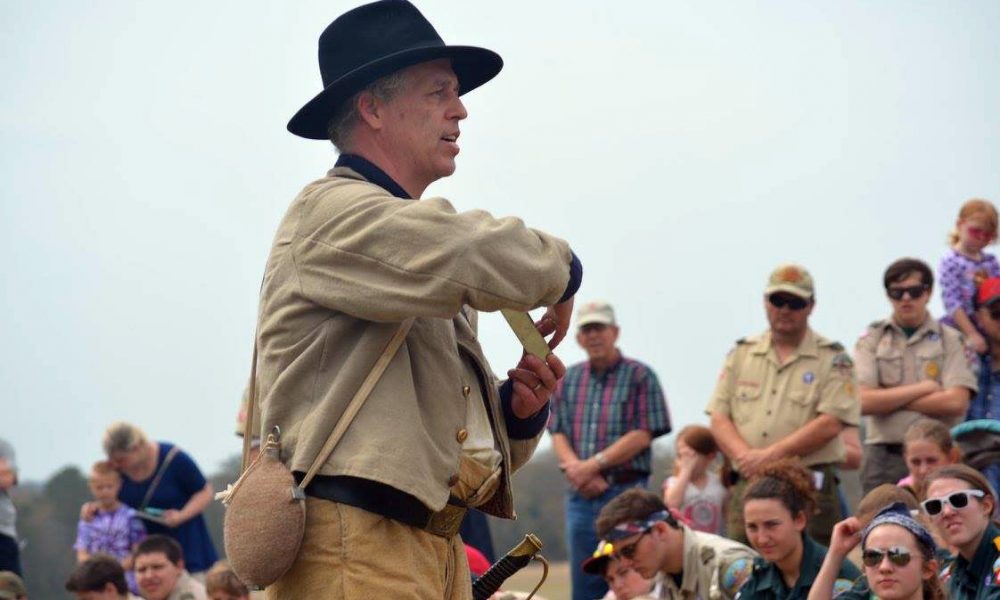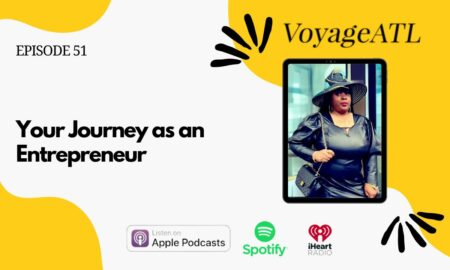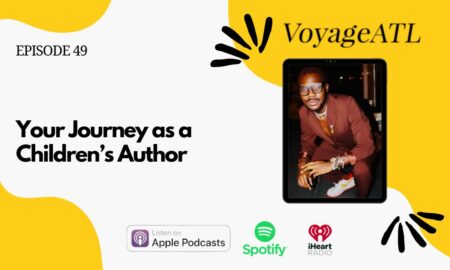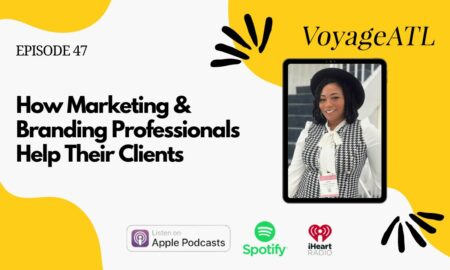

Today we’d like to introduce you to Gene Harmon.
Gene, let’s start with your story. We’d love to hear how you got started and how the journey has been so far.
I have always been interested in history since very young. It started with the John Wayne WWII movies and then progressed to looking through books my parents had and then, reading the text as I got older. At the time, it was mostly on WWII but realized I would probably never set foot on a WWII battlefield. I grew up in the Atlanta area which is rich in history from pre-European contact up through modern times. I gravitated toward the era of the American Civil War with the history of Atlanta’s involvement in the war.
I spent over 20 years working in IT mainframe computer operations after serving in the Army in the mid-80s. There was no degree or college education. I had learned it all hands-on and had moved into management. With the transition away from mainframes to networking, I found myself laid off and looking for work. Since 1994, I have been involved with Civil War living history and we all joked around the campfire about how we could make a living doing it. On a whim in the winter of 2012/2013, I did a search for “historical interpreter” and a job listing came up for this position with Aramark, a concessionaire for the National Park Service. It was for a seasonal historical interpreter at Denali National Park & Preserve in Alaska. I had been doing presentations at living history programs in state and national parks since 2005, such as Andersonville National Historic Site and Sweetwater Creek State Park, but they all consisted of volunteer experience. I had no formal work experience, so even though I thought I was taking a shot in the dark, I applied for it. They called for a phone interview and offered me the position the next week.
I spent the summer of 2013 in Alaska portraying Andrew Fleutsch, a 1941 park ranger at a 1924 era cabin 15 miles into the wilderness of the park. It took extensive research of the park and the individual to put together a historical representation of not only Ranger Fleutsch, but the context of the era portrayed. This presentation was part of my certification as a Certified Interpretive Guide through the National Association for Interpretation and it also had to pass the scrutiny of National Park Service interpretive staff. This was an amazing summer. Not only was Alaska an unbelievably beautiful place, but the experience set my passion on fire. I realized this is what I should have been doing all along as a profession. Historical interpretation brings history alive, pulling it out of one-dimensional books and impersonal statistics into living breathing people, which helps connect the past to the present.
I returned from Alaska determined to find work in this field. While continuing college courses to pursue a history degree, I kept searching and searching and searching for an interpretive job in the Atlanta area. In January of 2014, I applied to a position at the Atlanta History Center. I was called in for an interview and was offered the position a few days later. Starting there in February 2014, I have been there since. My position is a historical interpreter portraying Edward Inman in 1930. He was a prominent businessman who was part of a very influential family in the growth of Atlanta and molding it into the business and transportation center it is known as now.
This brings me to where I am now. Unfortunately, the world of museums and historic sites employ part-time interpreters for the most part. A full-time position is very few and far between. While still employed at the Atlanta History Center, I have begun implementing living history programs and presentations for any organization which is interested. One of my first as an independent interpreter was at a senior center in Cobb County. I have contacted and received expressed interest from, groups and places locally and out of state.
Overall, has it been relatively smooth? If not, what were some of the struggles along the way?
A smooth road? Definitely not. I spent all those years in corporate America making really good money, but in the long run, the time away from family, the time in traffic, and the burnout was not worth it. One of the biggest struggles was just taking that leap of faith – making that initial jump. So many naysayers told me throughout my life that my love of history and writing was not worth following. My wife Aimee changed all of that, encouraging me to go back to school and chase those dreams. She was very supportive regarding my summer in Alaska and actually pushed hard for me to accept that position, knowing I would regret it if I had.
Please tell us more about your work, what you are currently focused on and most proud of.
I am a historical interpreter, living historian, and storyteller. But exactly what is that saying ? I continuously do research for programs, using the information on the historical era to create programs which will connect people today with people and things in the past. I do not use a script but instead, pull from the knowledge gained to implement programs and presentations which I like to think of as more like conversations than lectures. I like for people to get involved and ask questions. If a question comes to mind, ask it. Do not wait until the end because that question may have slipped from the mind. It happens to me, so I know it can happen to anyone else. It is this type of interpretation which sets me apart from many others. I am not chained to a script, so questions or comments often lead down rabbit holes before returning to the main theme or even discovering together that they add to the theme. For this reason, every program or presentation is usually quite different from each other. I also concentrate on everyday people in history – the soldiers in the ranks, the people on the home front, the park ranger daily on patrol. These are the people in history which are the easiest to connect with. There are plenty of Lincolns out there, as well as Lee’s, Davis’, or Roosevelts, and while interesting, they are seldom easy to connect with on a personal level. Good interpretation aims to do just that – help people make personal connections with the past.
What am I most proud about? This would be the research and attention to detail I put into my programs. My passion drives me to be the very best I possibly can.
If you had to go back in time and start over, would you have done anything differently?
Everybody asks themselves this question throughout life. If I had to start over, I would ignore those who said it was not possible or said it was a worthless dream. Each person has dreams and passions which drive them. Everyone has things which really excites them, lights them up, and fulfills them. Never give up your dreams. Whatever they are, they are your dreams and they are worth chasing. When you achieve your dreams, dream some more.
Contact Info:
- Website: http://storyteller.geneharmonwrites.com/
- Phone: 678-906-9725
- Email: hcove06@hotmail.com
- Facebook: https://www.facebook.com/Gene-Harmon-Historical-Interpreter-2552636588134937/?view_public_for=2552636588134937








Suggest a story: VoyageATL is built on recommendations from the community; it’s how we uncover hidden gems, so if you or someone you know deserves recognition please let us know here.



















